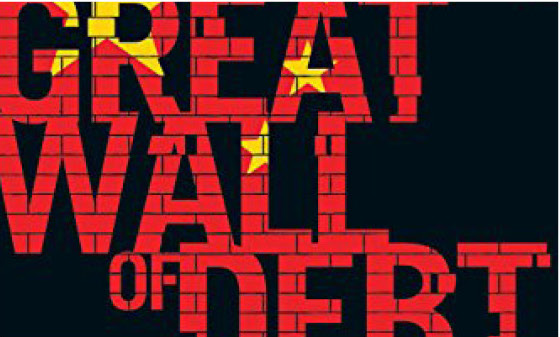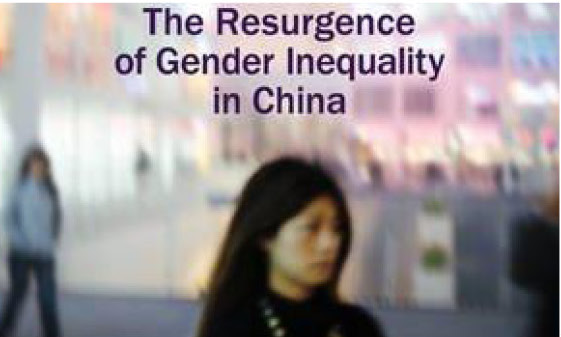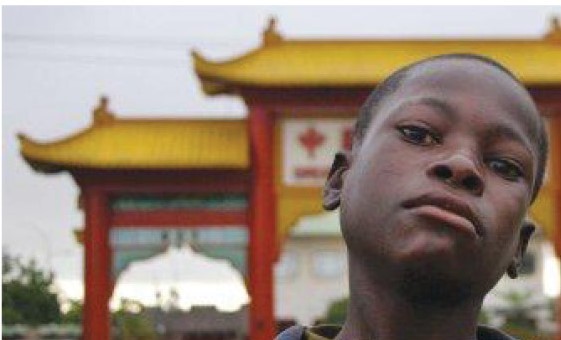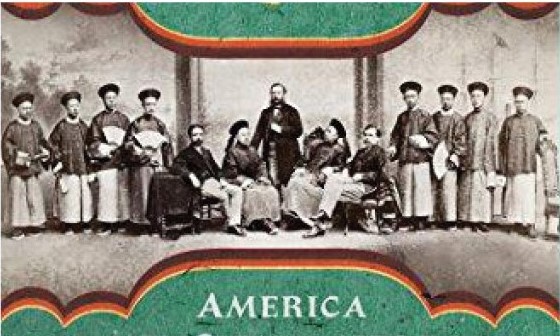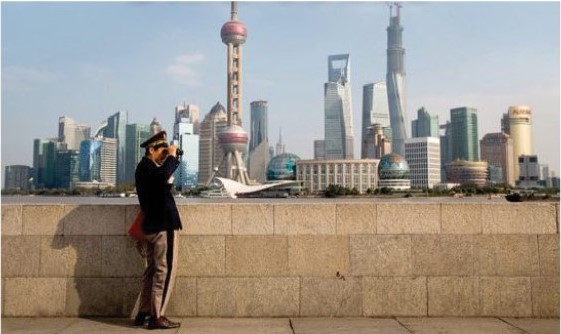The China Project Book List — time period: 2008 to Present
Sort by genre:
Culture/Society/Memoir | Literature | History | Politics | Business/Tech
Sort by time period of primary subject matter:
Ancient and Imperial China | Republican Era to 1949 | Mao to Tiananmen | 1990s to Pre-Olympics | 2008-Present
~
94. Unnatural Selection: Choosing Boys Over Girls, and the Consequences of a World Full of Men
Mara Hvistendahl (Public Affairs, 2011)
China has no shortage of problems on its horizon, but perhaps one of the most alarming and underappreciated is its severe gender imbalance, which will see tens of millions of men go permanently without a female partner. In this book, journalist Mara Hvistendahl traces the origins of the problem, from Western fears of overpopulation in the 1960s though the present day, where a patriarchal culture, strict birth limits, and sex-selective abortion have made China ground zero for this problem with global implications. Hvistendahl’s vivid character-driven storytelling combined with her experience as a science reporter shine through, as she draws on extensive interviews, scientific research, history, and sociology to give a fascinating page-turner into how the problem developed and what its future implications may be. From increasing crime rates, human trafficking, and rising housing prices to the potential for more hawkish nationalism and social instability, she notes that, “Historically, societies in which men substantially outnumber women are not nice places to live. Often they are unstable. Sometimes they are violent.” This book is the go-to resource for understanding one of China’s greatest challenges, which will continue to strain the country in both obvious and subtle ways for decades to come.
— Eric Fish
86. China’s Great Wall of Debt: Shadow Banks, Ghost Cities, Massive Loans, and the End of the Chinese Miracle
Dinny McMahon (Houghton Mifflin Harcourt, 2018)
Making China’s complex and shadowy debt-fueled economy engaging to the ordinary reader is no easy task, but Dinny McMahon, a veteran financial reporter, does just that. One of the ways he cuts through the abstruse is through characters he’s met over the years: There are baijiu dealers, ambitious local politicians, despairing architects, and more, all offering a human face to the world of unsecured loans and peer-to-peer lending. McMahon also addresses ghost cities, state monopolies, and a manufacturing boom that has simultaneously generated huge prosperity and created what he sees as economic time bombs. His forecasts are gloomy, but there have already been a number of incidents, such as last year’s P2P lending scandal, that indicate his insights should be taken seriously. All together, China’s Great Wall of Debt is a slim economic treatise and lively reader’s guide to China’s contemporary economy.
— Amy Hawkins
81. In Line Behind a Billion People: How Scarcity Will Define China’s Ascent in the Next Decade
Damien Ma and William Adams (Pearson FT Press, 2013)
Educators should put this excellent and highly readable book on their syllabi. Organizing their analysis of China’s economics, politics, society, and even culture around the theme of scarcity — scarcity of resources, scarcity of public goods, of cultural products, of ideological legitimacy — the authors suggest that China’s breakneck growth will actually end up holding China back. Peppered with sly and sometimes not-so-sly humor, and with gleeful pop culture references, this book will provide a solid foundation for understanding contemporary China.
— Kaiser Kuo
80. Leftover Women: The Resurgence of Gender Inequality in China
Leta Hong Fincher (Zed Books, 2014)
It is a truth universally acknowledged that when a student opens a Chinese history textbook that addresses the status of women in Communist China, they will be confronted with one of Mao’s most famous utterances: “Women hold up half the sky.” What is less certain is whether that same text will talk about everything that women have endured in the many decades since. Leta Hong Fincher’s seminal work, Leftover Women: The Resurgence of Gender Inequality in China, lays out in no uncertain terms just how empty that platitude rings for Chinese women in the contemporary era. Devastating in its forthrightness, Hong dissects the rise of the demeaning term “leftover” (or 剩女 shèngnǚ, leftover women) to shame young women into marriage and childbearing — regardless of their own personal dreams for higher education or professional success. Hong also captures the political and social background that contextualizes precisely how women are kept from advocating for even the most basic rights, such as protection from abusive partners and economic exploitation.
Written in the years leading up to the Feminist Five incident and the #MeToo movement, Leftover Women lays the groundwork in a clear and unflinching way for understanding the cataclysmic events that have reshaped the landscape of contemporary Chinese feminism. Time may be up for tired maxims about holding up half the sky, but for Chinese feminist activism, Hong’s work proves that things are just getting started.
— Siodhbhra Parkin
65. AI Superpowers: China, Silicon Valley, and the New World Order
Kai-Fu Lee (Houghton Mifflin Harcourt, 2018)
As a venture capitalist who has invested heavily in China’s technology sector, Kai-Fu Lee is hardly an unbiased observer of artificial intelligence’s development on either side of the Pacific. But it is also precisely because of his unique depth and breadth of involvement in both worlds that makes him uniquely qualified to write this book.
Lee covers a great deal in a relatively short space (less than 300 pages), from a brief history of AI technology to the basics of how AI systems operate, all in the context of China’s tech ecosystem and the entrepreneurs who made it happen. AI Superpowers takes a complicated topic and makes it both entertaining and easy for laypeople to understand. The future of AI might well be the future of the world; use this book to make your acquaintance.
— Elliott Zaagman
57. Iron Moon: An Anthology of Chinese Worker Poetry
Translated by Eleanor Goodman (White Pine Press, 2016)
After publication, Iron Moon became the most widely reviewed book of Chinese poetry in English translation in years. In part this is because of its themes: Chinese factories create the world’s goods, and so many in the world will be curious about Chinese factories. But also it’s because of the quality of the poems, as translated by Eleanor Goodman. Most renowned of these poets is Xu Lizhi, a Foxconn worker who committed suicide in September 2014, with his most famous poem “I Swallowed an Iron Moon”: “I swallowed an iron moon / they called it a screw // … // I can’t swallow any more / everything I’ve swallowed roils up in my throat // I spread across my country / a poem of shame.” But also included is Zheng Xiaoqiong, a poet from Sichuan who worked in factories in Guangdong and now wins awards for her poetry and is invited to international poetry festivals. In these poems, tropes of classical Chinese poetry get reborn and put to new use: images of “moonlight” (月光 yuèguāng) indicate the poets’ homesickness, but also indicate that these industrial workers are part of the “moonlight clan” (月光族 yuèguāng zú), or class of people whose money is all spent up by the end of the month.
— Lucas Klein
52. Little Soldiers: An American Boy, a Chinese School, and the Global Race to Achieve
Lenora Chu (Harper, 2017)
Chinese American reporter and writer Lenora Chu and her husband, both based in Shanghai, made a bold decision for their young son: They enrolled him in one of the most competitive, high-performing schools in one of China’s most hyper-competitive, education-obsessed cities. The results are recorded with great candor and humor in Chu’s book. Little Soldiers is not, however, a simple screedo against rigid Chinese pedagogy. Instead, as she follows the lives of not only her son but of other Chinese students, Chu looks critically at both the Chinese and U.S. education systems and offers many important insights.
— Kaiser Kuo
47. The Dragon’s Gift: The Real Story of China in Africa
Deborah Brautigam (Oxford University Press, USA, 2011)
The first major work to take on the question of China’s impact in Africa, Brautigam’s book tends to accentuate the positive, as its title suggests. She builds on the insight that what China has done in Africa — infrastructure-for-resources deals, where China for instance builds a copper mine, a railway to the coast, and a container port and takes payment in copper until the debt is paid — is exactly what Japan did in China in the 1970s and 1980s, and the success of such projects in driving development in China is the rationale behind China’s initiatives in Africa. She takes on common critical tropes one hears in the West — debt-traps, enabling of kleptocrats and tyrants, neo-colonialism — with an impressive command of data.
— Kaiser Kuo
45. One Child: The Story of China’s Most Radical Experiment
Mei Fong (Houghton Mifflin Harcourt, 2016)
One Child follows the twists and turns of China’s most notorious social experiment: the planned birth policy instituted in 1980. Limiting families to a single offspring may have seemed prudent at the time, when China’s population was growing at alarming rates, but in reality, that decision carved out immense challenges for Chinese individuals as well as the world’s most populous country. For example, there’s Zhu Jianming, who had a reverse-sterilization operation just weeks after the death of his only child. His story illustrates the despair that accompanied the policy’s forced abortions and sterilizations. Yang Libing’s daughter was seized by family planning officials and placed on the global adoption market, a story that touches upon the corruption and human trafficking the policy fostered. And Liu Ting’s story is a harbinger of China’s future, when a generation will age out of the workforce amid a shrinking population. A former Wall Street Journal reporter out of Beijing, Mei Fong meticulously researched and documented these stories over the course of five years. One Child harkens back to an era that seems bygone — Chinese are now allowed two children — yet understanding the long-lasting effects of China’s social planning experiment is more important than before, as the country’s status grows ever larger on the global stage.
— Lenora Chu
39. The Emperor Far Away: Travels at the Edge of China
David Eimer (Bloomsbury USA, 2014)
For every hundred tedious China memoirs or airport books with a play on words about dragons in the title, there is a book like David Eimer’s. The Sunday Telegraph’s former man in Beijing set himself a tougher task than most: traveling through the borderlands, meeting the ethnic minorities that call them home, and attempting to get a feel for the “huge, unwieldy and unstable empire that is China.”
Eimer’s book details his visits to Xinjiang, Tibet, Yunnan, and then Dongbei (the country’s northeast). The timing was right, since many of the areas that Eimer visited between 2007 and 2012 are now either nearly impossible for foreigners to access or have been swamped by tourism and investment from the center. Eimer is not an expert, but his keen eye for detail makes him an excellent reporter on regions few outsiders get to experience. He also knows when to shut up and let the story happen to him — he knows, when a United Wa State Army chief offers you a meth pipe, etiquette dictates you smile and take a rip.
— Dylan Levi King
36. China’s New Red Guards: The Return of Radicalism and the Rebirth of Mao Zedong
Jude Blanchette (Oxford University Press, 2019)
The story of China’s transition from the chaotic ideological morass of Maoism to the embrace of market economics during the decades of reform and opening that began in December 1979 has tended to be Whiggish in its telling. In his first book, Jude Blanchette complicates and challenges that narrative, turning his lens on the conservative reaction to reform from the immediate post-Mao period to the present, focusing on leftist figures like Chen Yun and Deng Liqun, and on online neo-Maoist websites like Utopia. With lively writing and a great capacity for empathy, Blanchette rescues his subjects from the simplistic caricature to which they’d been relegated in many accounts.
— Kaiser Kuo
30. Nine Continents: A Memoir In and Out of China
Xiǎolǔ Guō 郭小橹 (Grove Press, 2017)
Xiaolu Guo was introduced to Anglophone readers by Cindy Carter’s translation of Village Of Stone in 2005. It was impossible not to read the autobiographical novel of a girl escaping to the city without wanting to know more about the author’s own life. Guo returned to the autobiographical with her first novel written in English, A Concise Chinese-English Dictionary For Lovers, which was based on her own expatriation to London in 2002. Turning to memoir made perfect sense, but few Chinese writers, with the exception of old-guard heavyweights and those in exile, ever produce novel-length memoirs. That makes Guo’s Nine Continents even more special. She writes of her childhood, growing up in miserable poverty in a fishing village in the 1970s before escaping to follow her dreams at Beijing Film Academy, then in England, and her experience of motherhood and return from self-imposed exile. Guo’s story of overcoming her background to seek her dreams is — especially in China — not unique, but her perspective is one we are rarely given access to; and her talents as a writer make this an essential story of the Chinese experience.
— Dylan Levi King
24. The Souls of China: The Return of Religion After Mao
Ian Johnson (Pantheon, 2017)
The Souls of China brings the reader face-to-face with the practitioners of a variety of spiritual traditions in China. Ian Johnson describes in vivid detail such experiences as Buddhist temple pilgrimages and festivals on the outskirts of Beijing, Daoist and folk religion practices in Shanxi Province, and the politics of protestant Christian house churches in Chengdu, Sichuan. Not all of religion and spirituality in China is covered here, but enough of it is, and the description and context given is so illuminating that the book, taken as a whole, communicates a compelling message about the direction of China’s national “soul” today. In short, although the lines of religion, spiritual practice, and “culture” are blurred — sometimes intentionally by the state — the Chinese people are responding to a genuine spiritual and moral vacuum created by many decades of state-led destruction and economic dislocation.
— Lucas Niewenhuis
20. The Beautiful Country and the Middle Kingdom
John Pomfret (Henry Holt and Company, 2016)
Early in John Pomfret’s wildly ambitious 700-page masterpiece on the history of U.S.-China relations is an observation that sets the theme for the entire book: “If there is a pattern to this baffling complexity, it may be best described as a never-ending Buddhist cycle of reincarnation. Both sides experience rapturous enchantment begetting hope, followed by disappointment, repulsion, and disgust, only to return to fascination once again.” Indeed, many of the characters throughout the nearly 250 years of U.S.-China interaction can be found today, from the idealistic missionaries seeking to “change China” to the Chinese students with American educations who return to become their country’s political and business elite.
And that’s what makes The Beautiful Country and the Middle Kingdom such a captivating read. Its thoroughly researched stories of riveting individuals throughout history put today’s U.S.-China relationship in much-needed context, particularly as that relationship falls under increased strain. Pomfret writes what is at its core a turbulent love story of two nations whose passions swing violently between desire and loathing. It’s a recipe for a dysfunctional relationship, but a relationship that defines our present and future — and one that makes for a fascinating book.
— Elliott Zaagman
17. China’s Second Continent: How a Million Migrants Are Building a New Empire in Africa
Howard French (Knopf, 2014)
China’s growing presence in Africa has been a hot topic for years, with rival camps staking out positions on so-called debt trap diplomacy, on allegations of neo-colonialism, or exploitative resource extraction, or unfair labor practices. What gets overlooked too often is the lived experience of ordinary people, whether Chinese or Africans. Howard French, a veteran reporter with the New York Times, with extensive reporting experience in Africa and in China, addresses this gap in an excellent book that profiles, with great sensitivity and sympathy, a number of Chinese living and working in countries around Africa. Their personal stories go far toward a better understanding of China’s ambitions as well as its challenges. French has the rare combination of experience, reporting skill, and writing chops that make this book essential reading for anyone seeking to make sense of China’s extensive involvement in Africa.
— Kaiser Kuo
9. Age of Ambition: Chasing Fortune, Truth, and Faith in the New China
Evan Osnos (Farrar, Straus and Giroux, 2014)
Age of Ambition is itself an ambitious book, aiming to capture the essence of contemporary China through a diverse set of people that Evan Osnos met during his eight years in the country, where he was a staff writer for the New Yorker. What Osnos achieves is a compelling series of snapshots of 21st-century China, threaded together by each character’s burning desire to change their fortunes. Part of this book’s achievement is its treatment — with equal respect — of outliers such as Ai Weiwei and ordinary people like internet entrepreneur Gong Haiyan. After all, they all have something valuable to say, and are all part of the “real China” story. In one particularly entertaining vignette, Osnos joins a Chinese tour group on a holiday to Europe; for him, the explorers are absurd, but also poignant and proud. You’ll find yourself laughing with them, and cheering them on as they pursue their grand, sometimes quixotic ambitions.
— Amy Hawkins
5. The Party: The Secret World of China’s Communist Rulers
Richard McGregor (Harper, 2010)
One evening in Beijing in the late 1990s, Rupert Murdoch quipped to fellow dinner guests that he had yet to meet any Communists during his trips to China. The modern rulers of the Middle Kingdom might not be the Marxist ideologues Murdoch imagined, but they operate very much like the Communists of old: behind an opaque screen, with a hard grip over the military and state apparatus.
One of the guests at Murdoch’s dinner was the veteran journalist Richard McGregor. In The Party, he draws from years of reporting and scholarly analysis to pierce through the red fog and shed light on the Chinese Communist Party, a deeply powerful yet often misunderstood organization. Ambitious in scope and rich in detail, the book offers an acute dissection and vivid accounting of the Party’s roles, how it operates, and the reasons behind its longevity. Published in 2010, The Party predated the reign of Xi Jinping, but as the current Chinese leader expands and tightens the Party’s control over all sectors of society, the book feels particularly timely, even prescient. By reading it, one understands that the Party is always the big boss, deriving its authority not from any one individual at the helm, but an expansive system — one that creates and enables power-brokers and abusers of that same power.
— Yangyang Cheng
The China Project Book List. Back to main Books List page

